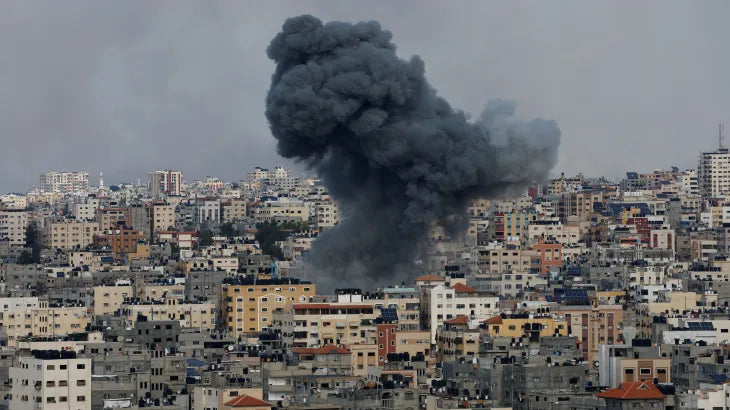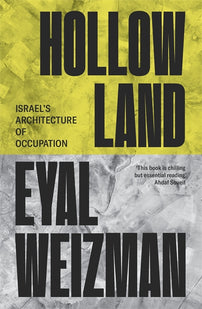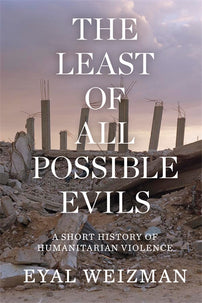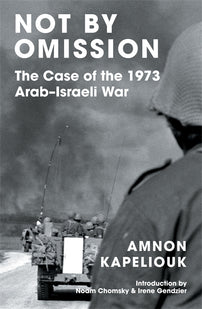For the last time: Rejecting the conversation ‘between the sword and the neck’
Western media's double standard for Israel and Palestine demands that Palestinians and their allies surrender to the logic of Israeli occupation. Shadi Chalesh writes of the importance of resisting and delegitimizing questions that demand Palestinian capitulation.

On the morning of Saturday 7 October, the military arm of Hamas supported by other Palestinian factions based in the occupied Gaza Strip launched ‘Operation Al-Aqsa Flood’. Most Western national newspapers and commentators immediately began reporting, many repeating the same mantra: the Palestinians started a war against Israel. The Independent reports that “Israel retaliates with strikes,” the New York Times reports that “Hamas attacks and Israel declares war,” while the Sunday Telegraph calls it Israel’s “‘9/11 moment’.” Throughout this coverage, and not unlike the media framing of the September 2001 attacks at the time, Operation Al-Aqsa Flood is consistently treated as the ‘year zero’, with Western press representing Israeli warfare as a new development in response to Hamas’s surprise attack.
But the written record of Israel’s cut-and-paste Nakba policies on the Palestinian people is longer and deeper than the past week. Operation Al-Aqsa Flood is not a momentary or one-off attack: it is the latest stage of an anti-colonial struggle for self-determination.
Expectedly, the immediate reaction to these words from Western academia, human rights groups and funding organizations will be to demand a condemnation of the killing of Israeli civilians, women and children, by Palestinian fighters in the uprising. In our respective spaces, Palestinians, activists, students, scholars, artists and human rights defenders alike, will again be asked to declare their opposition to violent resistance, and the direct targeting of Israeli civilians and civilian institutions. By extension, the friends of Palestinians and voices of solidarity will be asked to tell an occupied people how to resist their oppressors, and dictate acceptable methods for their liberation movement.
When navigating these questions, people of conscience need not reinvent the wheel. Here we can learn from Palestinian intellectual Ghassan Kanafani who in a 1970 interview in Beirut with Richard Carleton, was repeatedly asked why the Popular Front for the Liberation of Palestine would not engage in peace talks with the Israelis. Why not just talk? Why not talk about the possibility of peace? Pointing out that the framework of the question simultaneously demands capitulation and surrender to the Israeli occupation, Kanafani rejects the interviewer's plea for what is actually “a conversation between the sword and the neck.”
Fifty years later, we are still confronting colonial erasure in the framing of Palestinian liberation.
Before the current uprising, no one was asked whether they condemned the killing of Palestinian civilians.
Do you oppose the fatal shooting of a child on the roof of her home while feeding her cat, as was the case of 16-year old Jana Zakarneh?
Do you condemn nightly military raids on hundreds of Palestinian homes in Nablus and Jenin, locking families in bathrooms, while turning their living rooms into sniper posts?
Do you oppose the targeting of Palestinian human rights groups like Al-Haq and Adameer?
The withholding of dozens of Palestinian bodies from their families?
The extrajudicial capture of Palestinian children as bargaining chips?
These questions are almost unthinkable, rarely asked or given space in Western academia, press or funding organizations.
So, do we declare our opposition to violent resistance? Do we condemn the targeting of Israeli civilians and civilian institutions? Asked in this manner, it is a colonial question. It is asked as if in a vacuum, without an analysis of power or history. Only asked at this moment because Israeli civilians were directly targeted, en masse, and killed. And because Israeli society is included in the European and Western gaze of political subjectivity—because they have the right to have rights—condemnation of the targeting of civilians is now a precursor for any collaboration with and support of Palestinians.
To engage with a question framed in this way is to engage with the colonial erasure on which it relies. Because when formulating our answer on the value of human life and dignity, the moment we begin to scratch the surface of the daily hyper-militarized landscape of Palestinian life under Israeli apartheid the conversation ends, it self-destructs and auto-immunizes itself. For this reason, it is a disingenuous question—a dishonest and insincere conversation that has already decided who gets to be human. And so, as people of conscience, we reject it.
Shadi Chalesh is a writer and researcher based between Palestine and Europe with a memory that reaches beyond the past week
Further reading:
See all our publishing on Israel/Palestine here
Download Ten Myths About Israel by Ilan Pappe for free here
[book-strip index="1"]


